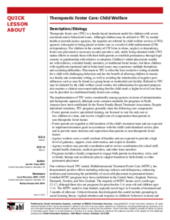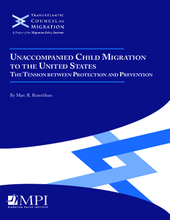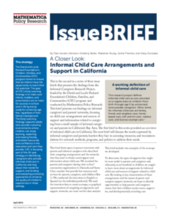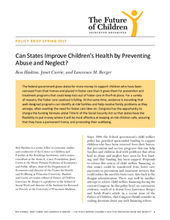Displaying 1971 - 1980 of 2221
In this “Quick Lesson About Therapeutic Foster Care,” the author provides a description of, and background information on, therapeutic foster care in the United States, an overview of national statistics regarding therapeutic foster care, and an overview of the risk factors and symptoms associated with children in need of therapeutic foster care.
This report examines the policy challenge in the United States of balancing protection and immigration enforcement in the recent unaccompanied child migration “crisis” in the US.
This brief from Mathematica Policy Research presents findings from the Informal Caregivers Research Project on informal caregivers’ and parents’ networks in the US. The research focuses on child care arrangements and sources of support and information related to caregiving.
This brief from the Future of Children Journal, a collaboration of the Woodrow Wilson School of Public and International Affairs at Princeton University and the Brookings Institution, outlines the current state of the Child Welfare System in the United States, particularly federal funding to individual states’ child welfare systems.
This review of literature covers international material related to stability and permanence for disabled children, in particular permanence achieved through fostering and adoption.
A small number of Native American tribes in the USA are receiving federal foster care assistance. This article explores why.
A recent report from the Inspector General of the United States has revealed that many children in foster care in the US who are enrolled in the Medicaid health insurance program are not receiving adequate medical care, says the article.
In this brief article, the authors make their case for extending the age limit for young people to receive care in the foster care system, focusing on the UK and the US.
This article highlights recent research from the US revealing that supporting youth in transitioning from foster care can help to promote strong mental health and to protect youth from developing mental health difficulties later in life.
A new bill has been introduced in the state of Oregon in the United States which would allow grandparents to maintain legal custodial rights of their grandchildren when their grandchildren’s parents have had their parental rights terminated.




